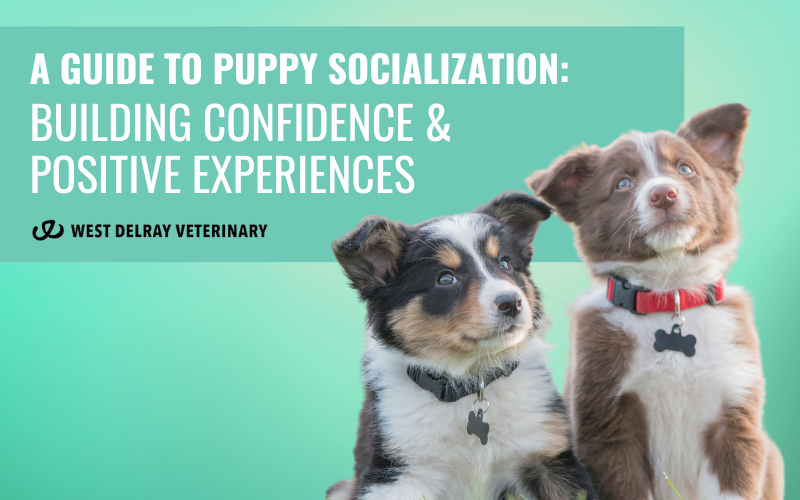Welcoming a new puppy into your life is an exciting and rewarding experience. Those adorable, fluffy bundles of joy bring so much happiness, but they also come with the responsibility of ensuring they grow into well-adjusted, confident adults.
One of the most critical aspects of raising a happy and balanced pup is proper socialization. In this guide, we’ll explore the importance of puppy socialization, how to go about it, and the positive impact it can have on your furry friend’s future.
What is Puppy Socialization?
Puppy socialization is the process of exposing your puppy to a variety of people, places, animals, and experiences during their critical developmental period. This crucial stage typically occurs between 3 and 14 weeks of age.
During this time, puppies are more receptive to new experiences and less likely to develop fear or aggression towards unfamiliar things.
The goal of socialization is to help your puppy develop confidence, learn how to interact with the world around them and form positive associations with new stimuli. It’s like giving them a strong foundation for a happy and well-adjusted life.
Why is Puppy Socialization Important?
- Reducing fear and anxiety: Proper socialization helps puppies become more resilient in the face of new and potentially scary situations. They learn that the world is a safe and exciting place, reducing the likelihood of developing anxiety or fear-based behavior problems in the future.
- Improved behavior: Socialized puppies are less likely to develop behavioral issues such as aggression or excessive barking. They are more likely to become well-behaved and adaptable pets.
- Enhancing human-animal bond: Socialization strengthens the bond between you and your puppy. It helps your pup trust and feel comfortable with you as their caregiver.
- Easier veterinary visits: A well-socialized puppy is more likely to remain calm during veterinary visits, making healthcare less stressful for both you and your furry friend.
How to Socialize Your Puppy Mindfully
- Start early: The critical socialization window is short, so begin as early as possible, ideally by 8 weeks of age. However, it’s never too late to start; older puppies can still benefit from socialization.
- Expose to various people: Introduce your pup to people of all ages, genders, and ethnicities. Encourage gentle interactions and positive experiences with strangers.
- Meet other dogs: Arrange playdates with other well-vaccinated and friendly dogs to help your puppy learn appropriate canine social skills.
- Explore different environments: Gradually expose your puppy to various environments, such as parks, busy streets, and different surfaces like grass, sand, and pavement.
- Introduce new sounds and sights: Let your puppy hear different sounds like traffic, music, and household appliances. Expose them to different sights, such as bicycles, strollers, and people wearing hats or sunglasses.
- Positive reinforcement: Use treats and praise to reward your puppy for calm and confident behavior during new experiences. This helps them associate these situations with positive outcomes.
- Go at their pace: Pay attention to your puppy’s body language and comfort level. If they seem overwhelmed or fearful, take a step back and try again later.
The Role of West Delray Veterinary
At West Delray Veterinary, we understand the significance of puppy socialization in building confident and healthy pets. Our team of experienced veterinarians and staff is here to support you in your puppy’s journey to well-adjusted adulthood.
During your puppy’s visits, we focus not only on their physical health but also on their emotional well-being. We strive to create a positive and fear-free environment, ensuring your puppy associates vet visits with a pleasant experience.
Contact us today to schedule your puppy’s wellness exam and to learn more about our services designed to promote the health and happiness of your beloved pet.
For more information and to schedule an appointment, visit West Delray Veterinary. Your puppy’s well-being is our top priority.
Therapeutic Massage
Elevated Standing
Argos recently underwent another surgery to correct the stability of his knee and is expected to make a full recovery very soon!
If you are located in the Delray Beach, Boynton Beach, or Boca Raton area and are interested in Rehabilitation Therapy for your pet, please feel free to contact the team at West Delray Veterinary at 561-777-7173 or visit our website at www.westdelrayvet.com.

